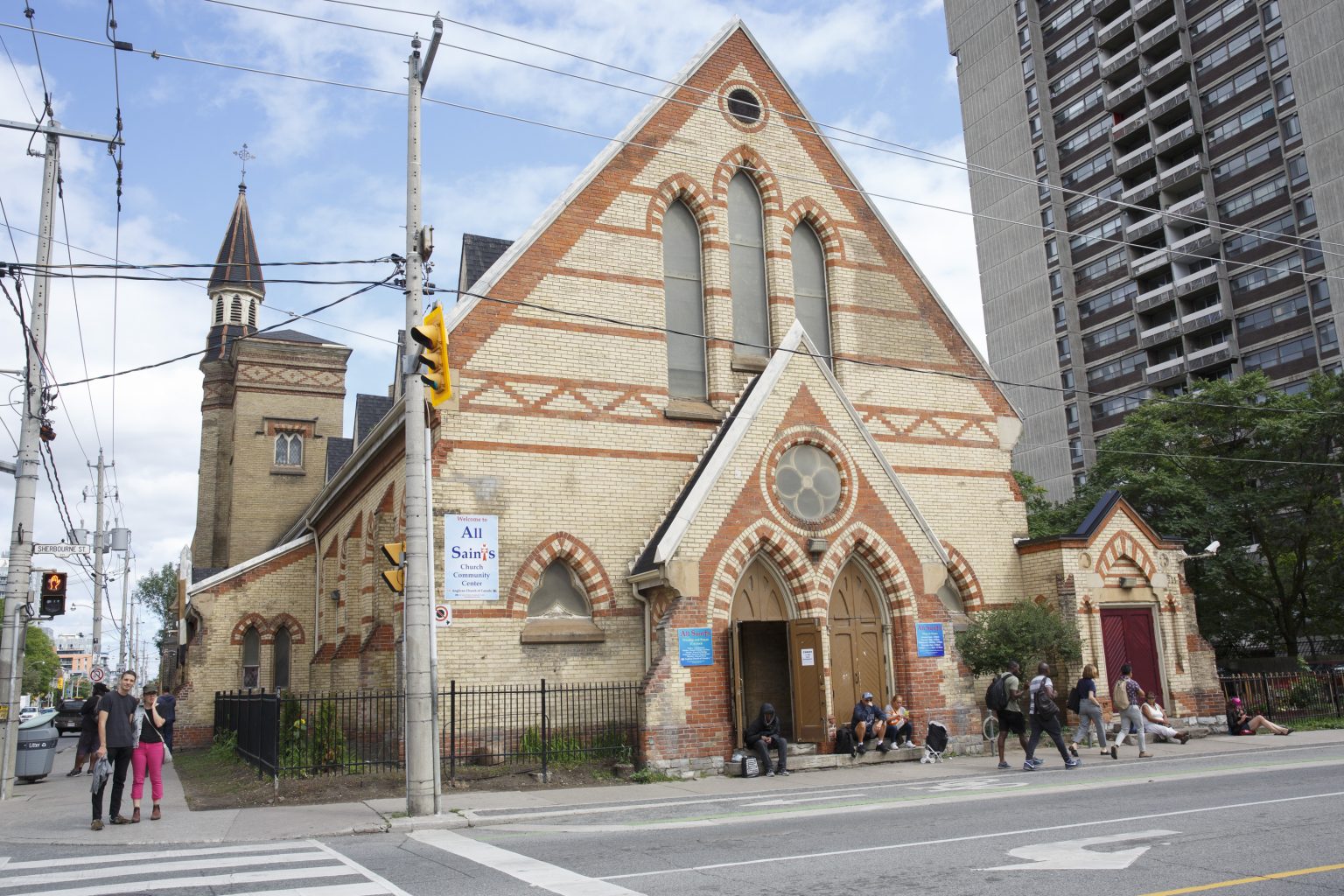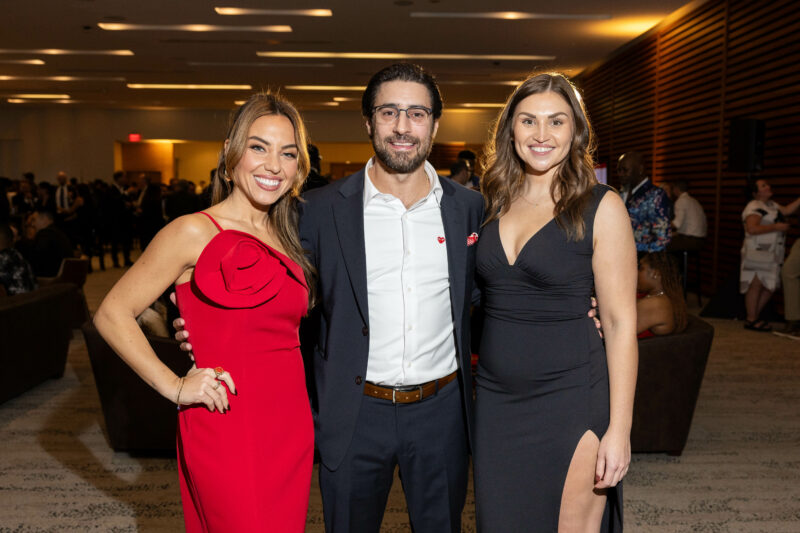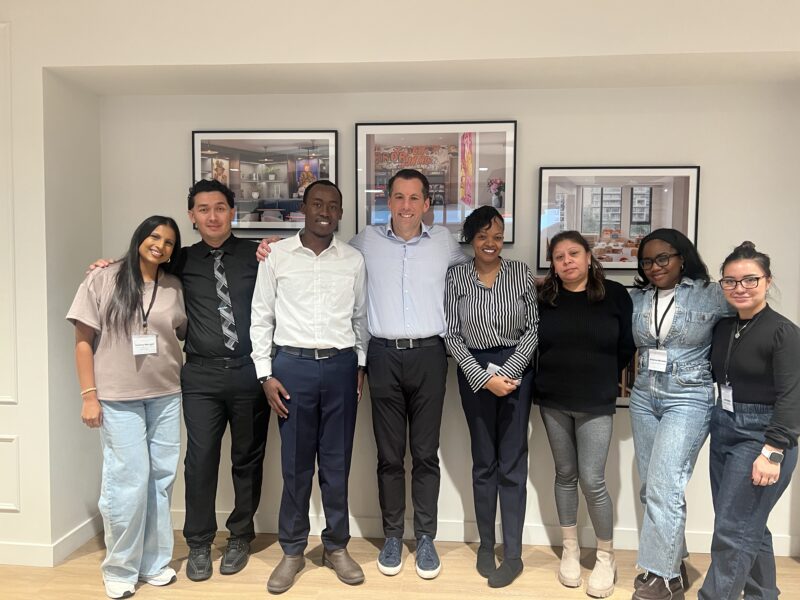Prepared by Ana Cisneros, Community Engagement and Programming DEI Supervisor.
In the heart of Toronto’s downtown east, All Saints Dundas and Pembroke, managed by Homes First, stand as more than housing sites — they are community spaces where staff and residents navigate challenges together, weaving resilience through everyday acts of care, patience, and creativity. The voices of Aditi, Intensive Case Management (ICM) worker, and Sharon, Site Manager, reveal how staff meet the complex needs of residents with compassion, resourcefulness, and determination.
Who Calls All Saints Home

All Saints supports a highly diverse community of residents who live with overlapping challenges. Recent data shows residents range in age from their late 50s to over 70, with a mix of men and women, as well as Indigenous, Black, and newcomer populations. Many residents live with physical disabilities, mobility limitations, or chronic illnesses. Others are managing mental health conditions, substance use histories, or the lasting impacts of trauma.
For example, more than half of residents report mobility issues requiring walkers, scooters, or wheelchairs. Levels of support needs also vary, from individuals who are highly independent to those requiring intensive case management. LGBTQ+ residents, newcomers, and long-time Torontonians all share the same space, bringing diverse experiences but also common struggles around poverty, isolation, and access to health care.
This complex demographic picture highlights why All Saints is more than just housing: it is a place where programming, case management, and trauma-informed care must respond to many intersecting needs.
Frontline Dedication: Aditi’s Perspective
Aditi joined Homes First in 2024 after completing her studies in developmental service work. Originally from Nepal and only 22, she admits that entering the shelter system was an eye-opening experience. “I was so unaware about the homeless population. Gradually, when I started to work with them, I felt more comfortable. Every day is a new day.”
At All Saints, many residents live with mental illness, physical disabilities, or mobility challenges. Aditi describes her role as part advocate, part caregiver, and part learner. She recalls supporting a client with a leg amputation and multiple health concerns: “Her wheelchair was not in good condition, so I delivered her meals and medication in her unit, and sometimes took her outside just to get some fresh air. Regardless of the challenges, you do what you can to help.”
The work is not without stress. Adjusting to issues like pests, addiction, and trauma was initially overwhelming. But Aditi has learned to cope by leaning on supervisors, doing her own research, and practicing self-care. She emphasizes the importance of small but meaningful supports for staff: clear de-escalation guides, mental health pamphlets, and even collective gym memberships. “Sometimes just a flyer, a reminder to take a break, or to breathe, can make a big difference,” she notes.
For residents, programs like art, writing, and music therapy have been transformative. “I feel it’s the best program we ever had. Residents love it and wait for it. It’s not just the program — it’s the energy the facilitators bring, the way they listen. Just doing a sign-in card, asking how you feel today, makes a big impact.”
Above all, Aditi stresses trauma-informed care: “You can’t change a person in a moment, but you can change things with your actions and respect. First and foremost, make them feel heard.”
Creating a Supportive Space: Sharon’s Perspective
For Site Manager Sharon, who has been at All Saints for seven years, creating a supportive, safe environment is a team effort. She recalls how the staff prepared the common room for the summer: repainting, cleaning, and making it a welcoming hub. “We spoke with the tenants, sent calendars highlighting events, and created a happy space with computers, TV, games, and programs.”
Programming is designed to balance structure with flexibility. From writing workshops to bingo nights and movie screenings, staff try to keep residents engaged. Sharon has also seen the impact of the arts: “With the new arts program funding, it’s been amazing. People really enjoy it. I just wish it could be extended longer.” You can contact Rachel Mae, the amazing art therapist who helps clients at All Saints, at Mae & You Art Therapy.
But Sharon is also practical. She sees the gaps clearly: the difficulty residents face in accessing Ontario Works, financial aid, and stable employment. Refugees in the building, she says, are often left with “leftover jobs” and very little stability. At the same time, the pressures of the outside street community spill into the building, creating challenges with safety and stress.
Her managerial style is rooted in honesty and respect. “Don’t lie. Treat people with respect. We’re all just people trying to get through life.” Sharon doesn’t micromanage; she trusts her staff to do their jobs, while remaining accessible and hands-on when support is needed. “I’m all over this place. If you need help, I’ll help you. If you’re having trouble with a tenant, I’ll talk to them.”
Looking ahead, Sharon hopes to expand opportunities: resume workshops, employment support, and physical activities like chair yoga or stretching. She knows winter will bring more pressure, but she leans on patience and mutual respect as essential practices for staff: “Don’t show fear, because if you show fear, you’re done. Respect is just saying hello, not thinking you’re above anyone. We’re just people.”
Shared Values, Shared Strength
Together, Aditi and Sharon reflect the spirit of All Saints: frontline dedication and managerial steadiness working hand in hand. They know the challenges are immense — from mental health crises to systemic gaps — but they also see the daily victories: a resident attending art class, a tenant opening up in conversation, a client gaining confidence through music or writing.
As Aditi puts it: “It’s not a big deal to listen. Just listen. We are all human; we can work it out.” And as Sharon reminds: “Slow and steady wins. Respect, honesty, and patience. That’s how we get through.”
At All Saints, these values are more than principles — they are lived out daily in the shared journey of residents and staff.
To learn more how you can get involved to support Homes First programs, visit: www.homesfirst.on.ca/get-involved/
To learn more about the Mae & You Art Therapy , visit: http://www.maeandyouart.com/
To learn more about the All Saints, visit: https: https://allsaintstoronto.com/


